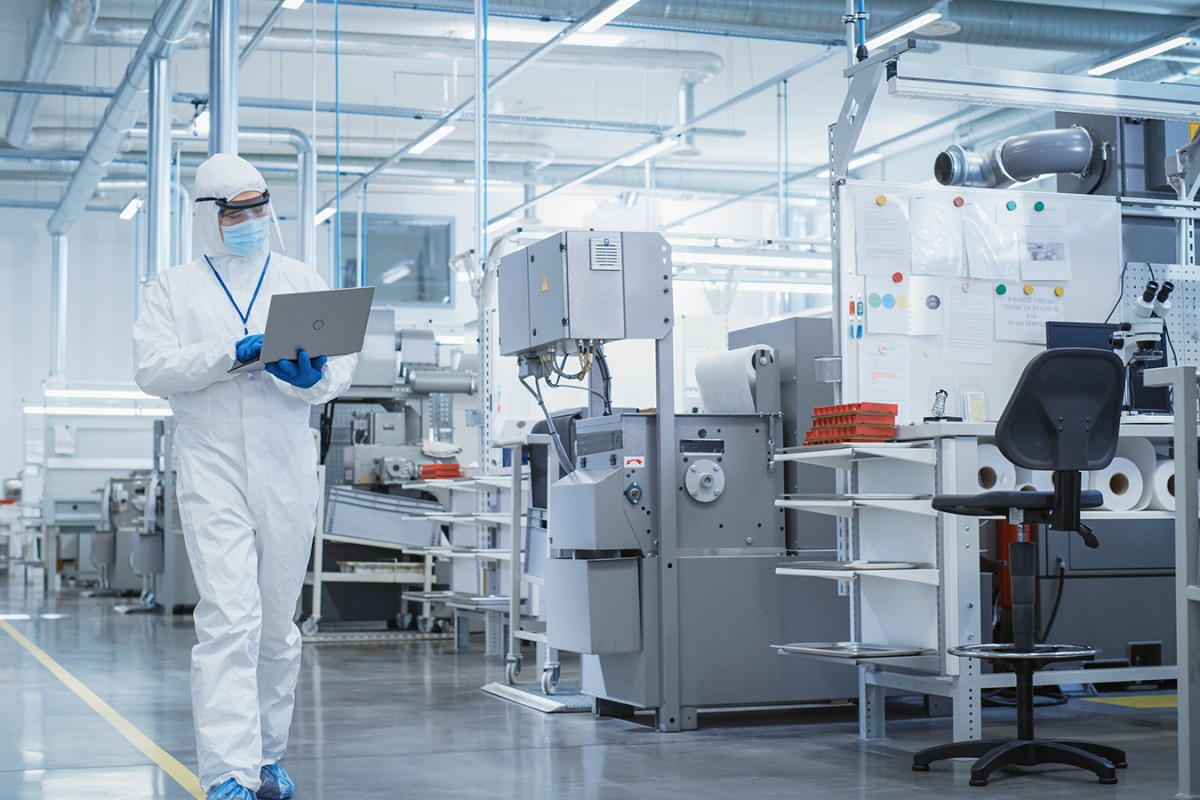Antimicrobial Additives Within Cleanroom Environments

Cleanrooms serve as essential facilities in industries where the utmost cleanliness and sterility are imperative to ensure product quality and compliance with regulatory standards. In sectors such as pharmaceuticals, biotechnology, electronics manufacturing, and healthcare, even the slightest contamination can lead to significant consequences, including compromised product efficacy. The critical importance of maintaining pristine conditions within cleanroom environments has led industries to continuously seek innovative solutions to bolster hygiene measures.
One solution is the integration of antimicrobial additives into various materials used in cleanroom environments. These additives are specifically designed to inhibit the growth and proliferation of microorganisms, including bacteria, fungi, and viruses, thereby further fortifying the sterile conditions necessary for optimal operations in cleanroom settings. Silver ion based additives interfere with microbial cell membranes and DNA replication processes, ultimately inhibiting microbial growth whilst contributing to a more hygienic environment.
As industries strive to uphold stringent hygiene standards, the incorporation of antimicrobial additives represents an effective approach. By integrating these additives into surfaces and equipment, the potential for microbial proliferation is reduced. This proactive measure not only maintains the hygiene of the cleanroom environment but can enhance overall operational efficiency by reducing the frequency of contamination events.
Antimicrobial additives find widespread use in various cleanroom applications. They are commonly employed in pharmaceutical manufacturing, where maintaining a contamination-free environment is critical for drug safety and efficacy. In medical device production, these additives contribute towards ensuring that devices remain sterile. In semiconductor fabrication, where microscopic contaminants can lead to product defects and failures, antimicrobial additives contribute to maintaining the high levels of hygiene required for successful production. Similarly, in food processing and healthcare facilities, these additives play a vital role.
When constructing a cleanroom, antimicrobial materials are favoured to reduce microbial load. Various components and surfaces within a cleanroom environment can benefit from the incorporation of antimicrobial additives. These additives can be integrated into a wide range of materials used in cleanroom construction and equipment, including wall panelling and paints, flooring, ceiling tiles, doors, windows, workstations, benches, tables, and storage units. Additionally, equipment and tools frequently used in cleanroom operations, such as gloves, gowns, masks, and goggles, can also be treated with antimicrobial additives to inhibit microbial growth. Even cleaning supplies and maintenance tools can be enhanced with antimicrobial properties to ensure that every aspect of the cleanroom environment is hygienic.
The application of antimicrobial additives in cleanrooms is not limited to just construction materials and equipment. High-touch surfaces and critical areas prone to microbial contamination are prime candidates for these additives. For example, door handles, light switches, and control panels can be treated.
Antimicrobial additives play a critical role in enhancing the hygiene of cleanroom environments across a diverse range of industries. Organisations effectively integrate these additives into their cleanroom facilities to maintain high standards of hygiene, ensuring that their operations remain compliant with regulatory standards. It is important to note that antimicrobial technology is not a replacement for regular cleaning and disinfection protocols. Instead, it forms part of a continuous and sustained decontamination strategy, working in conjunction with standard hygiene practices to provide a comprehensive approach to contamination control.
By leveraging the power of antimicrobial additives, industries can enhance the efficacy of their cleanroom environments, protect their products, and ensure the safety of their processes. This proactive approach to contamination control underscores the importance of innovation and vigilance in maintaining the highest standards of cleanliness and sterility in critical industry sectors.
You can find out more about Biomaster Antimicrobial Technology HERE
What Next?
🔗 Follow us on Social Media, here is our LINK TREE
✉️ See how our additive technology can benefit your business by CONTACTING US
🦠 Find out more about Biomaster Antimicrobial Technology HERE
🎥 Watch our video on how Biomaster works WATCH NOW
📰 Subscribe to our Newsletter - SUBSCRIBE
← Back to blog
